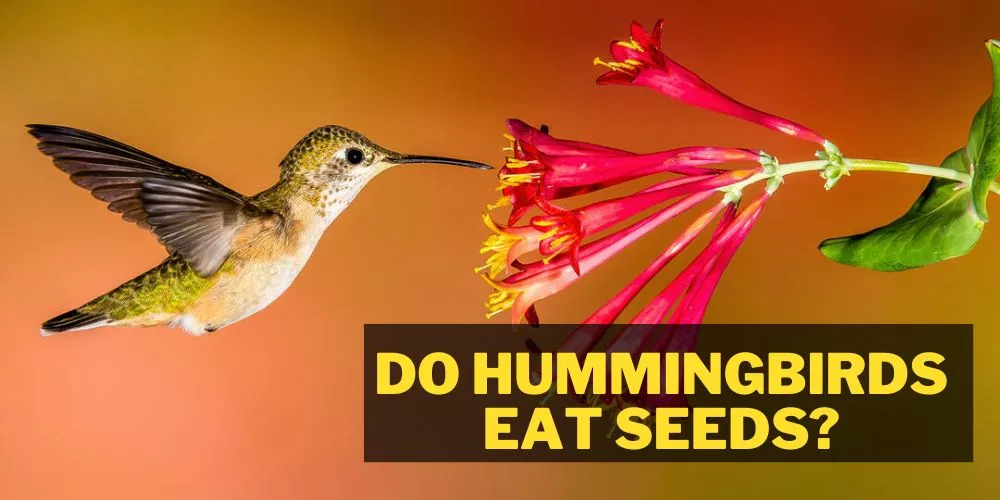Elderberries are delicious berries that are popular for making jams, wines, and other desserts. However, those who grow elderberries know that the sweet taste of these berries attracts much wildlife, and that brings us to a popular question- do deer like elderberries?
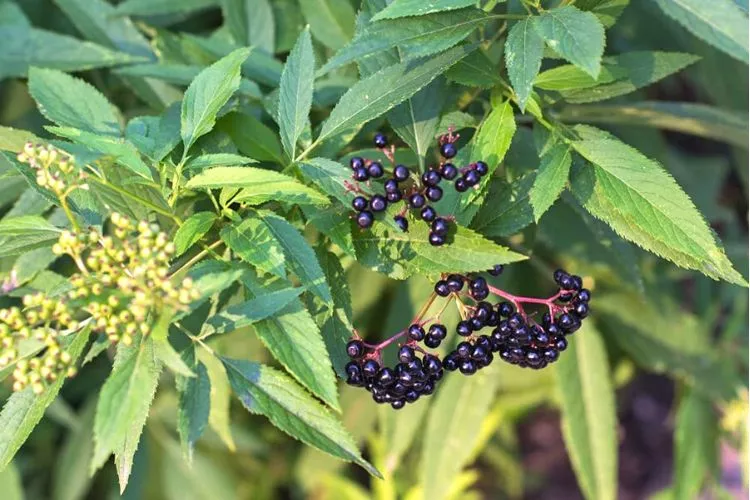
Is Elderberry Deer Resistant?
Deer, like other animals such as squirrels, birds, and bears, eat elderberry plants. However, as per some reports, the shrubs get deer resistant as per the plant’s location. Elderberry plants are likely to be deer resistant in areas that don’t grow them naturally or propagate.
Thus, deer are most likely resistant if you are growing these shrubs from scratch. All said deer get attached to elderberry plants in some states depending on food availability. Thus it can’t be said that the berry shrub is completely deer resistant.
How do I keep deer out of my elderberry?
Though it’s not clear is elderberry deer resistant or not, it’s better to keep a few tips handy to keep the deer away from your berries so you can get to make jams and wine with them.
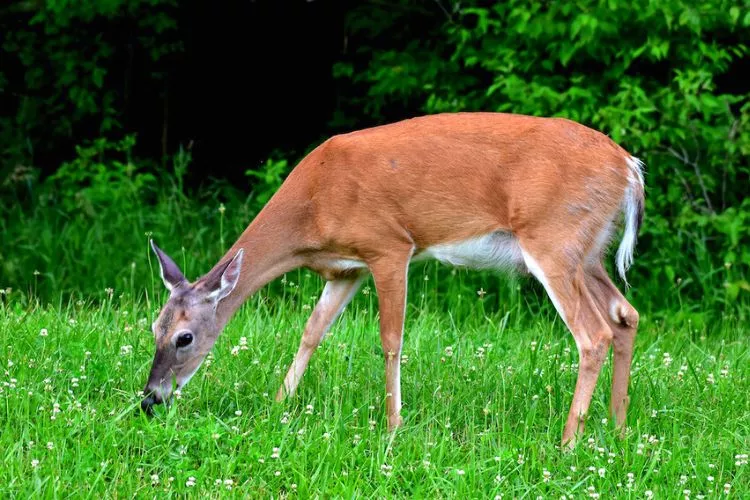
Repellent
This is the more common option – using a store-bought deer repellent. Simply buy some deer repellent and spray it around your shrubs to protect them. But make sure to switch and rotate the products you use to keep the deer away from your berries. Using at least two or three repellents is advisable as deer adapt to scent quickly.
Plant protection
Deer like having tender new plants right after fertilization. So, developing some form of fencing for your new elderberry sapling or transplant is advisable. This way, you can keep away deer and other wildlife from your plants. Besides, fencing protects plants against forging or trampling mid-season.
If you don’t want to spend much money on permanent fencing, you can opt for temporary ones to keep the deer away. You can also opt for netting or garden gates as alternatives to fencing. Other means include using a wire cage, tree shrub, or fishing line to protect your plants.
Deterrents
Using deterrents will also keep deer away from your elderberry bushes. While there are many forms, using a combination of audio and visual is most effective.
Two deterrents often provide the maximum results to protect plants from deer. For instance, have an audio scare device installed in your scarecrow. Many people also opt for flashing lights paired with scary-eyed balloons. Bare in mind that deer are very persistent animals. Thus, the system needs to be in place at all times.
What animal eats elderberry?
Apart from deer, which may or may not have elderberry, this plant has a wide fan following. Various types of rodents, like squirrels, feed on elderberries. Additionally, many local birds and animals are attracted to elderberries.
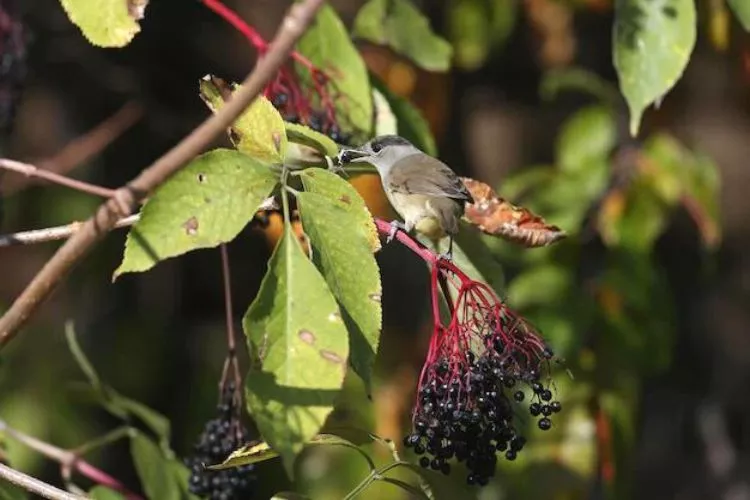
People living in areas where black bear visits are common might get frequent surprises thanks to the elderberries. Moose and elk prefer to eat elderberries’ stems, leaves, and foliage.
Different kinds of songbirds feed on elderberries during summer. These include the indigo bunting, common house finch ash throated flycatcher scrub Jay, and Stellar Jay, to name a few.
What is the most deer-resistant plant?
Protecting them from deer during seasonal bloom is important if you have fauna and flora in your garden. The same applies to elderberry plants. One most tried and tested method of protecting your garden from deer attack is planting a few deer-repellant shrubs. We have listed a few options here.
Panicle Hydrangea
Panicle Hydrangea generally grows fast and is not liked by deer. However, if deer do munch on them, the plants are strong, thus withstand less damage and bounce back quickly.
The flowers on these plants are light pink, white or red. They bloom all through summer and throughout fall. The plants have wide varieties, and mature plants go from 2 ft to 8 ft.
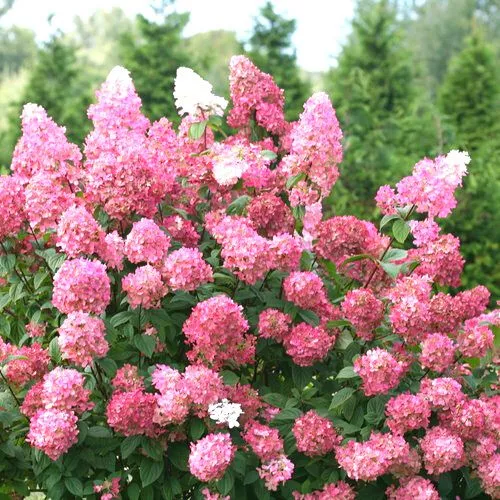
Osmanthus
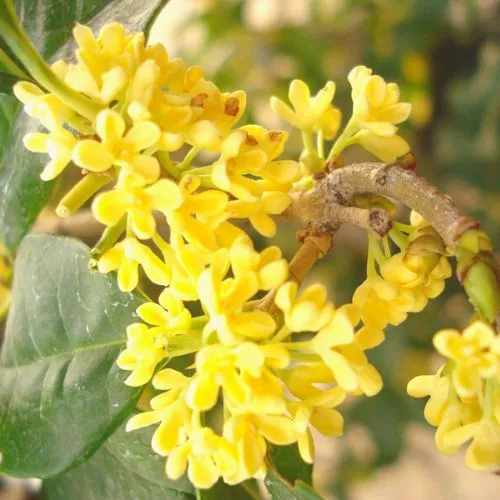
This plant can grow in different varieties of soils and light levels. As the plant grows fast, it’s often used for hedging or garden privacy.
The plant produces small clusters of white flowers that produce a light fragrance similar to magnolias. This scent and the spiny leaves make the plant unappealing to deer.
Lavender
Though humans love the smell of lavender, deer are not a big fan of this fragrance. Thus having a few lavender shrubs in your garden will protect it from a potential deer attack.
The plant is easy to grow and does not require much maintenance. However, they are susceptible to mites and aphids at times.
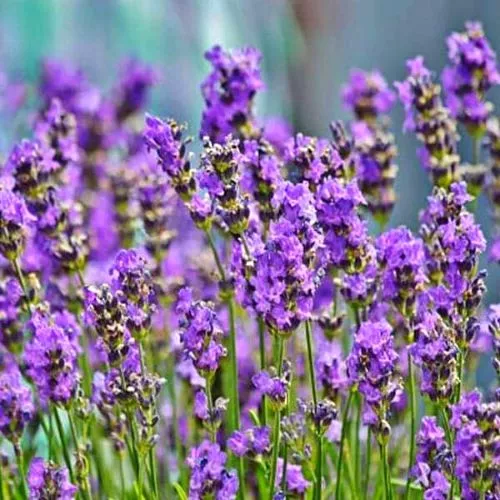
Ninebark
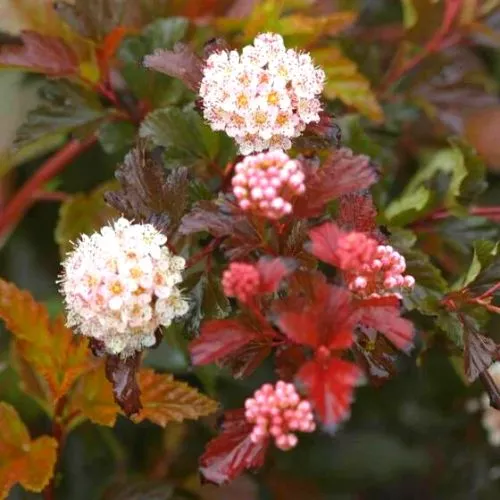
Ninebark is another fast-growing medium to large plant that produces white flowers in the late spring and summer. The foliage color of these plants is pretty bright, including bronze-red, burgundy, purple, and a few others.
The shrubs are beautiful and easy to maintain and grow well in sunlight. The plant is a perfect choice for cold climates.
Red Twig Dogwood
These plants are primarily grown for their foliage and bright red colored stem and are popular winter pants. Though it’s a deer-resistant plant, sometimes deer do eat them. But the good news is even if they do, the plant grows back quickly and can tolerate harsh pruning.
The plant is highly adaptable and can grow well in full sunlight and 50% shade. Though the plant covers a wide area, maintaining them is very easy.
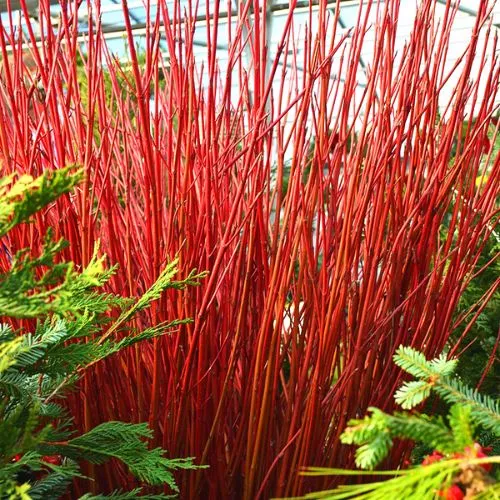
What is the best natural deer repellent?
Though there are many deterrents you can use to keep deer away from your garden, one natural method has been effective over the years- the smell of rotten eggs and spoiled milk. You can use these two ingredients as a natural deer repellent.
To create the spray:
- Beat the bad egg in a bowl.
- Pour the beaten egg into a spray bottle.
- Add a tablespoon of cooking oil, one tablespoon of dish soap, and ½ cup of milk to the bottle with eggs.
- Fill the bottle with water, close the lid and shake the bottle.
- Keep the spray in the fridge.
- Spray the mixture in your garden.
You May Also Find Useful: Do Deer Eat Potato Plants? | Do Deer Eat Oranges?
Frequently Asked Questions (FAQs)
What plants won’t the deer eat?
Deer don’t commonly eat foxgloves, poppies, and daffodil plants.
Will deer eat my elderberry?
There is no straight answer to this. At some places where elderberry grows naturally, deer might eat them. However, it’s often noticed deer avoid eating this berry if it does not grow in a place naturally.
Is black lace elderberry toxic to deer?
Yes. The stem and leaves of the plant contain an element similar to cyanide.
What keeps deer away in winter?
The best way to keep deer away in the winter is by adding some form of fencing to your garden. Wood privacy fencing or heavy plastic netting will keep deer at bay.
Conclusion:
Now that you know is elderberry deer resistant or not, you can take appropriate measures to keep your garden safe and blooming. We have included all you need to know to keep your garden blooming and safe from deer. However, it’s advisable to opt for physical barriers than using varieties of plants to keep deer away. Though elderberries rarely attract deer, through this article, you can ensure they are well protected.

